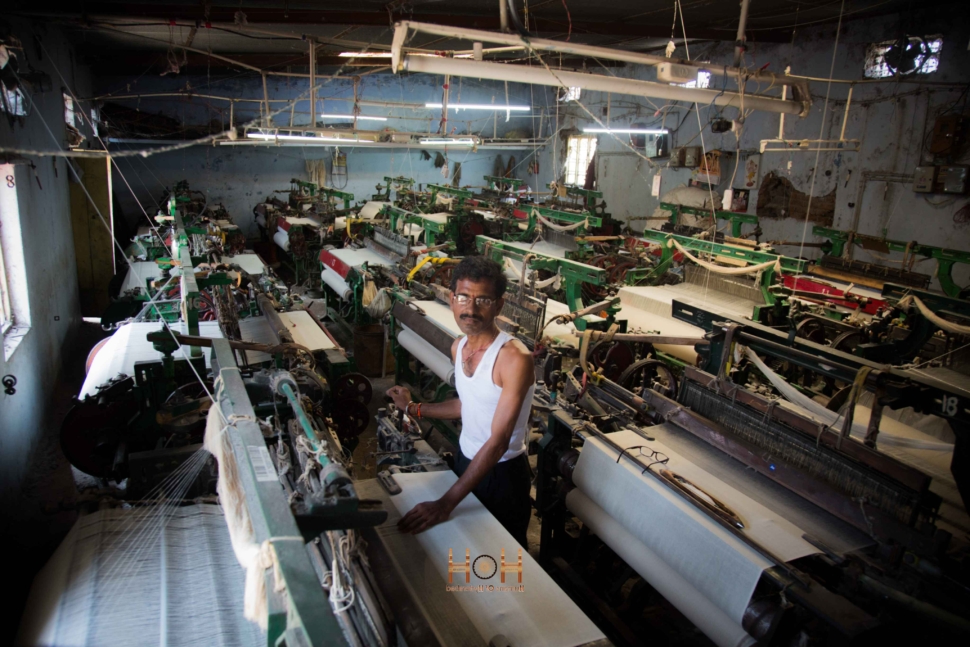Siricilla, a town in Telangana, has been the heart of the textile industry for over 60 years. Handlooms and Powerlooms have supported the livelihoods of many families here, but in 2025, weavers are facing one of their toughest years.
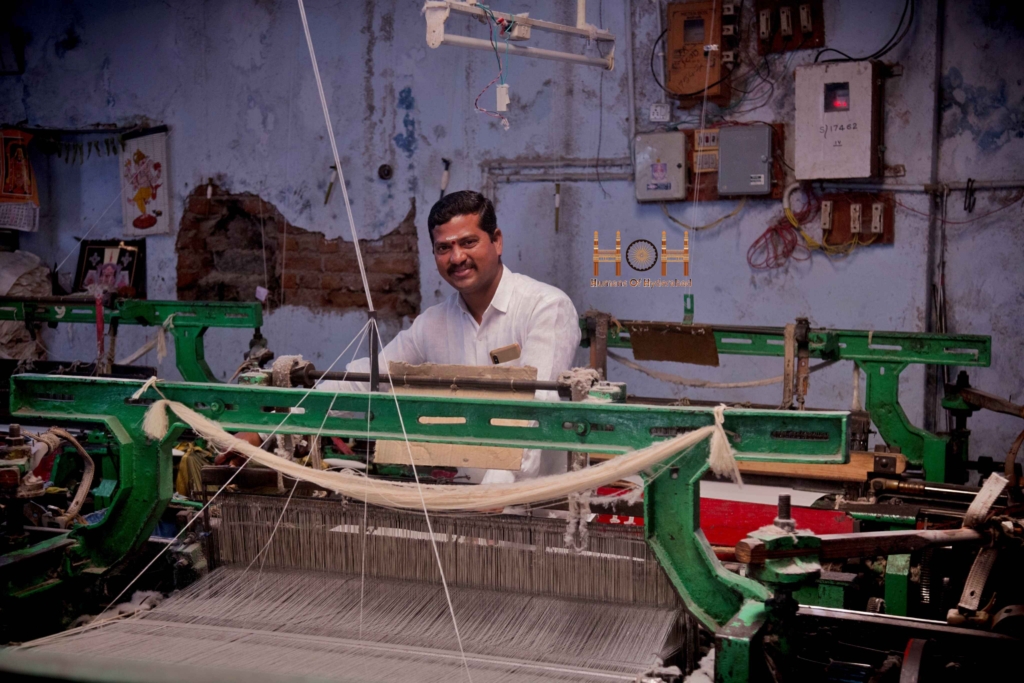
“We started with handlooms, and when powerlooms arrived in the ’50s and ’60s, we adapted. Today, we make everything—from dhotis and handkerchiefs to cotton sarees, bed sheets, towels, and curtains.”
Things were improving after Telangana became a state in 2014. “Before that, hunger deaths were common among weavers. But after 2014, things got better. Orders increased, wages went up from ₹10,000 to ₹20,000, and we gained a sense of dignity in our work.”
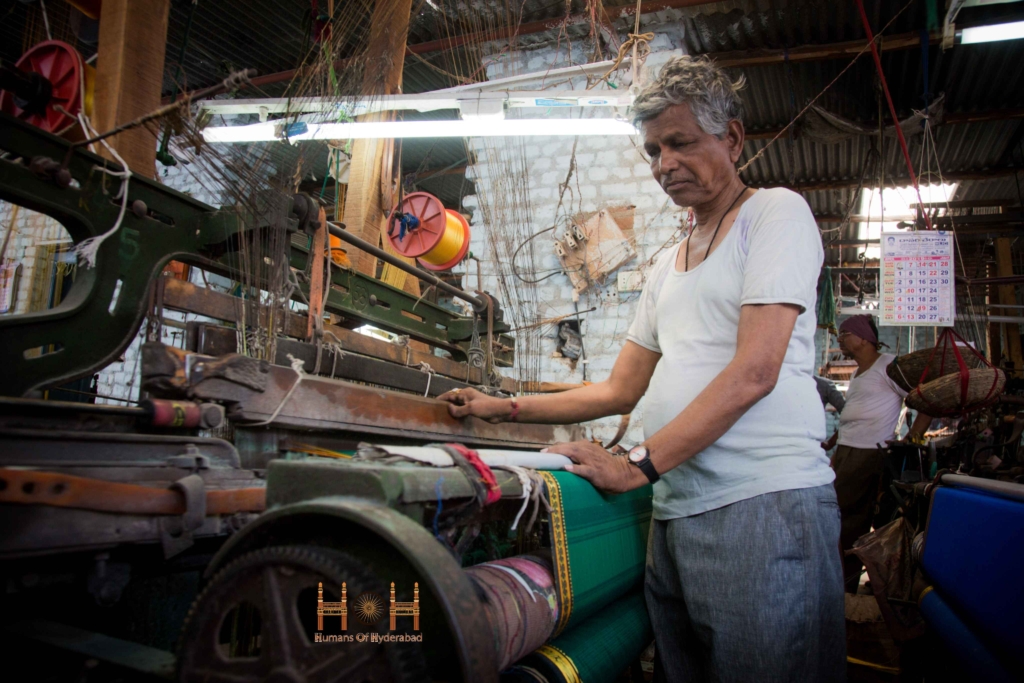
Siricilla’s powerloom industry supplies fabric across India. “We’ve always focused on quality and affordability. But lately, the demand for local products like casement cloth has dropped, making it harder to keep up.”
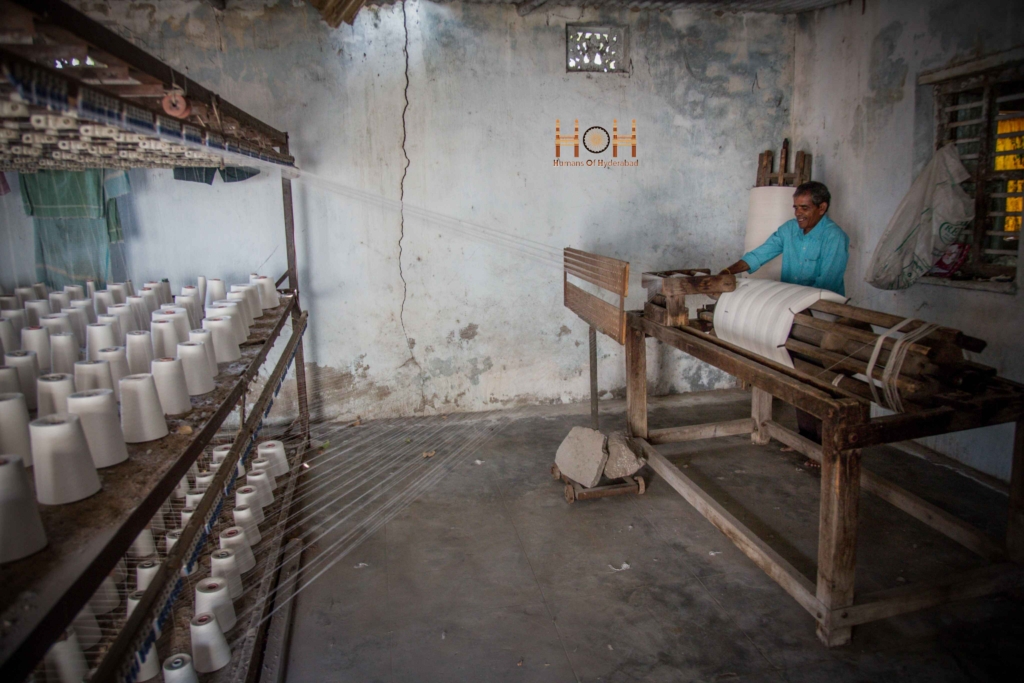
In 2025, the situation has worsened. “Electricity rates have jumped from ₹2 to ₹8 per unit. For the last 15 days, we haven’t been able to work because of frequent power cuts. We even missed completing a government order for school uniforms.”
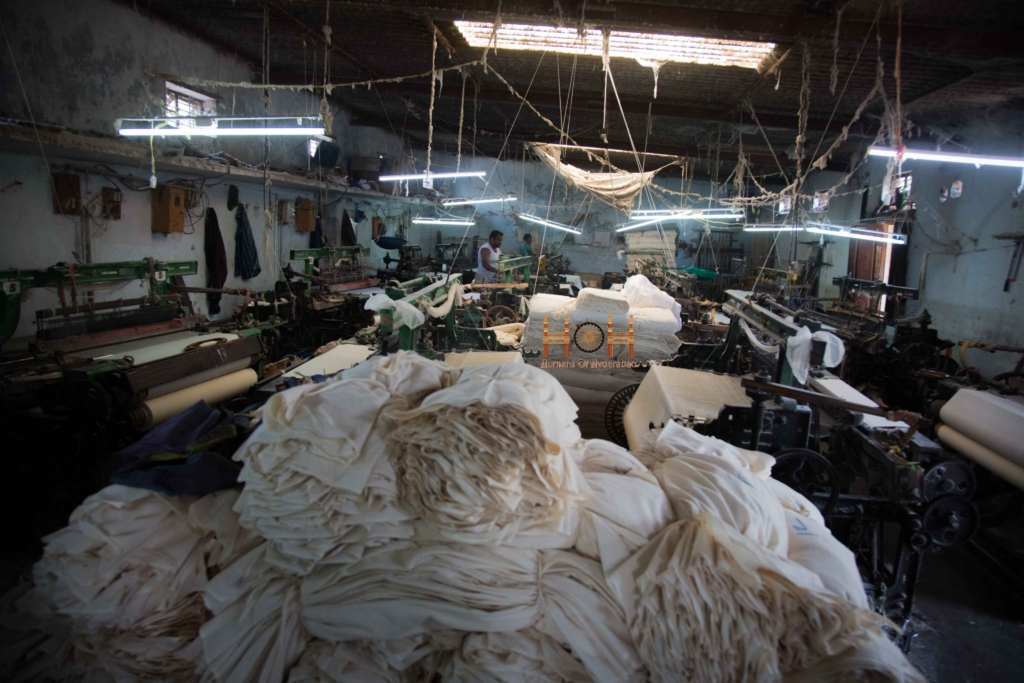
The shortage of workers is another big problem. “Many have left for places like Bhiwandi, where pay is better. It’s hard to keep up with fewer workers. The stress is taking a toll—physically and mentally.”
Officials from the Telangana State Grid Corporation (TGSCO) have visited but offered no solutions. “We’re still waiting for payments from previous orders placed by the government under the previous regime. Everything seems delayed, and it’s causing a lot of financial strain.”
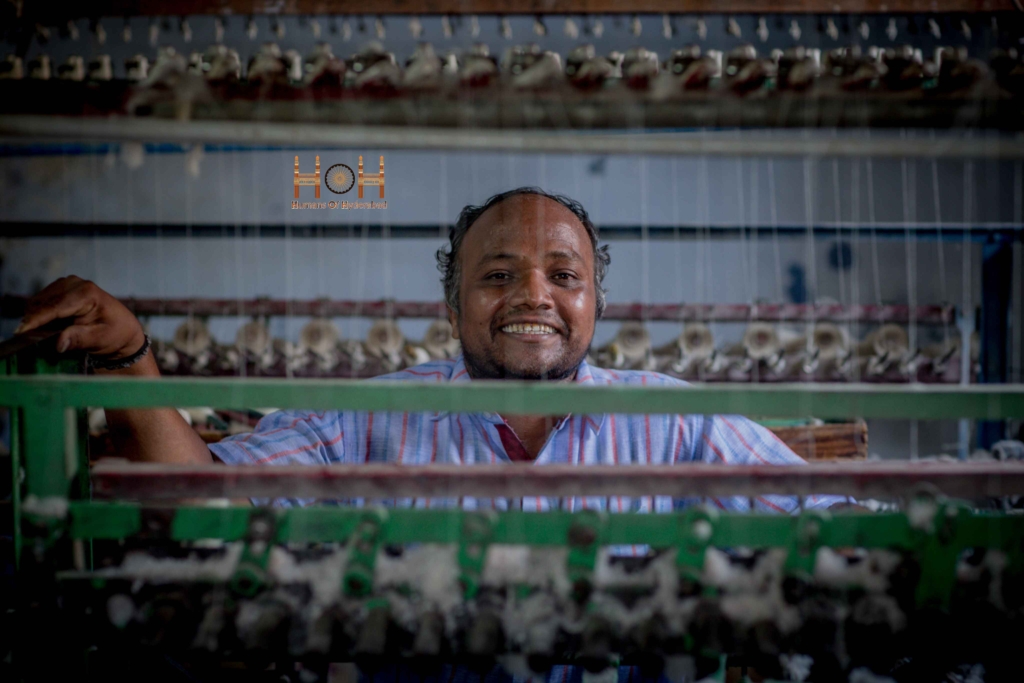
Now, the weavers are looking to the current government for help. “We request our MLA, KTR garu, and the State Government officials to urgently address our issues. If nothing changes, Siricilla’s looms will stop—and so will our livelihoods.”
— Kodam Srinivas, Powerloom Weaver, Siricilla
